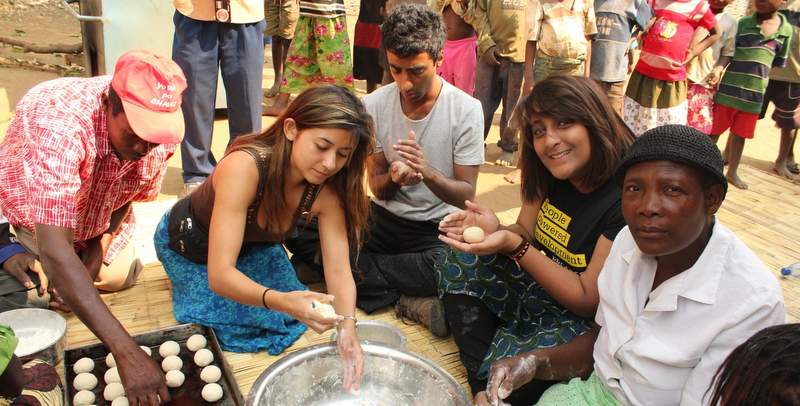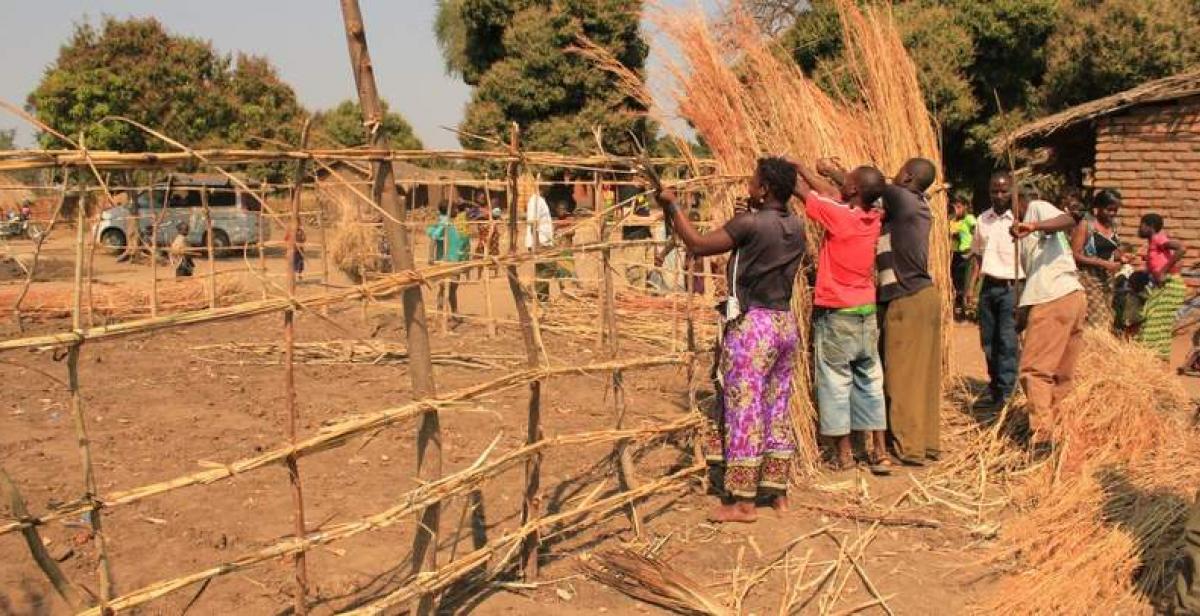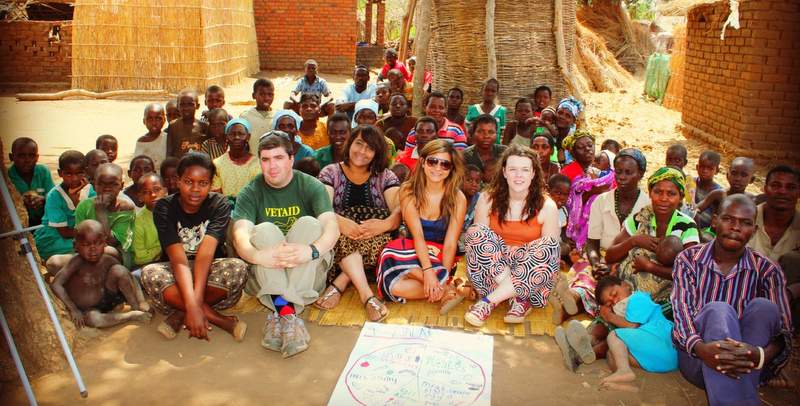It’s not enough! We don’t want it to end!
Since my last blog update, we have been so busy with many more exciting projects working with Environment Africa. Time has flown by so quickly, that it’s hard to engulf the fact that we’re leaving Salima in a few days! I feel so proud of the small differences we have made and of all the unique experiences we have gained; I just don’t want it to end! The many different projects in which we have been involved in are as followed…
Creating a tree nursery
On our fourth week in Salima (6th to 19th August) we were involved in the establishment of a Tree nursery in a village Nyanda. This project firstly included constructing a dead fence out of maze stalks. Joint with the villagers, local volunteers and some EA staff we built a whole fence in just under an hour! I really enjoyed the positive energy of the villagers that it gave me the motivation to work harder… It was so exciting to see the end product of our little perfect (actually, just a little wonky- because it was our first time) African fence. After this we enjoyed viewing the process of how trees are planted… Although at this particular village that we were working there was a funeral, we were welcomed and taught how to fill tubes. We helped in filling 100s of plastic tubes with soil, after this we did some seed collection and planted the trees. On the final day of this project we viewed how the villagers mark for pitting. It was like 3 wooden poles which were connected with string forming a triangle.
A balanced diet presentation
In the fifth week (13th to 17th August) the theme was nutrition gardens and training farmers. A common problem we’ve found in our observations is that there is lack of variety in the diets of villagers. The most common food both grown and eaten is Nsima (maze). Villagers are missing out on other nutritious foods, which we believe would tackle many problems they are facing today, such as bloated stomachs and being able to fight off diseases. So in order to address this issue we created a balanced diet pie chart to present the different food groups. We also talked about the benefits of each food groups and how much you should have every day. We felt proud that we had discussed some new with the villagers and encouraged them to grow a variety of foods which would keep them healthy. In this week we also bought onion and cabbage seeds, with two new watering cans, to implement a nutritious garden in a village. We also had the opportunity to visit the children’s ‘Fun Day’ organised by World Relief Africa where we presented our balanced diet pie chart too.
Honey making
My most favourite project was the honey-making and marketing week (20th to 25th August)! We had the opportunity to gather our very own fresh organic honey! We went to Catala village, where we witnessed the different stages of honey-making. We visited different bee-hives to extract honey combs, learnt the different methods of processing honey, we packaged honey in honey jars and made candles out of left-over honey-comb. Meeting the bee-keeping society and discussing the challenges they face was very interesting. It was sad to see the bee-keepers wearing ripped up gloves whilst they extracted the honey - they had been stung so many times. At the end of the week we visited a water innervation site. We saw dry shallow wells which had not been built properly and learnt about the difficulties these villagers faced in getting water. After identifying these problems in these two villages, we purchased items to give to these villagers help in stopping these problems from occurring. We gave new gloves to the bee-keepers, which they were very happy with. We also bought cement for the water-well village so that they could build onto it properly.
Baking
In the final week of our projects we were involved in baking and marketing (27th to 1st September). We met the baking society and learnt about their challenges. We had a fun baking day where we baked bread, buns and biscuits. We learnt about the different methods they use to bake and the challenges they faced. From observation we saw that the baking group had no oven gloves to wear and they had burns on their hand, so from this we invested in buying some oven gloves for them. We also bought them some baking powder to produce better quality foods which they said was too expensive for them to afford. In this week we also visited an orphanage and played with children. We were also involved in a sporting activity by the end of this week. Whilst we visited the orphanage we were told that some of the problems they face are shortage of plates and spoons for the children and that there were only 4 dolls which the 90 children fight over. So we bought them plates, spoons and many toys which made them very grateful.

It’s now the end of our time here in Salima and we’re packing to go back to Lilongwe! Our experiences have been life-changing. We really don’t want to leave. On our last drive through the villages we felt extremely emotional to see these children waving frantically at us for the last time. We have met some amazing people in the villages, at work with Environment Africa staff and working aside the local volunteers. We will miss them dearly and are thankful for making our experiences special.
ICS volunteer Sabah on her group's last weeks in Salima, Malawi




